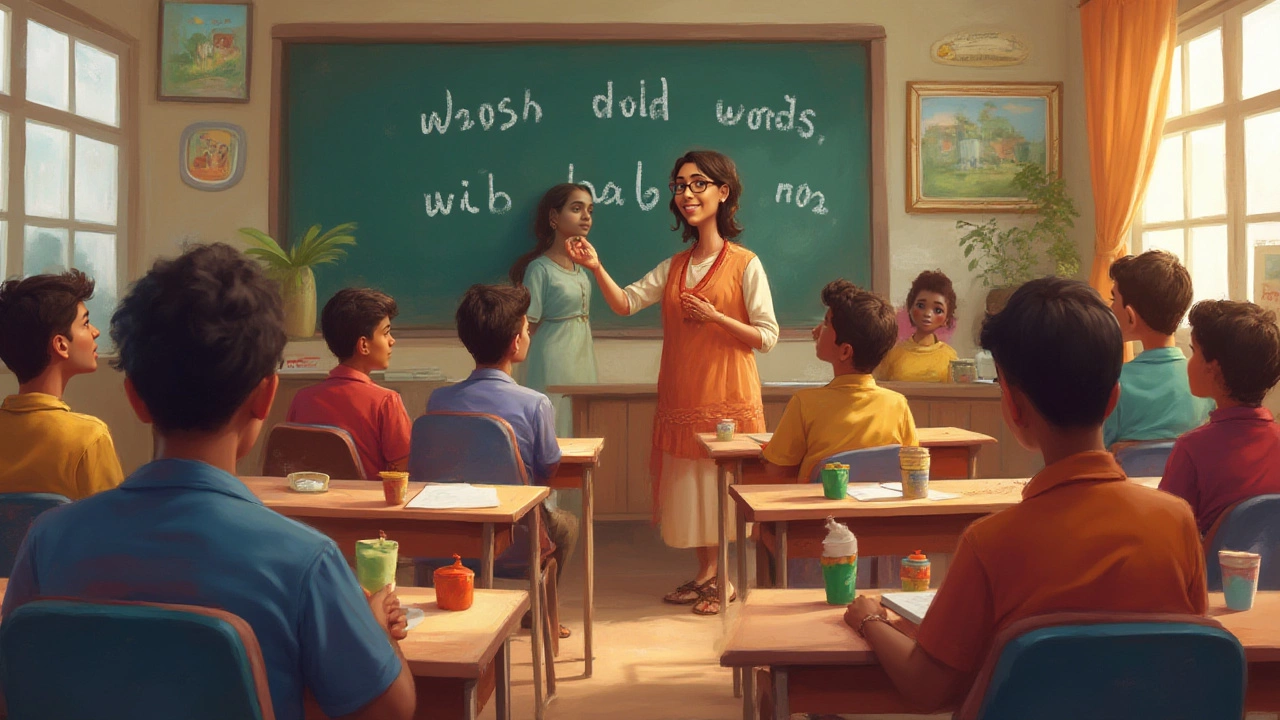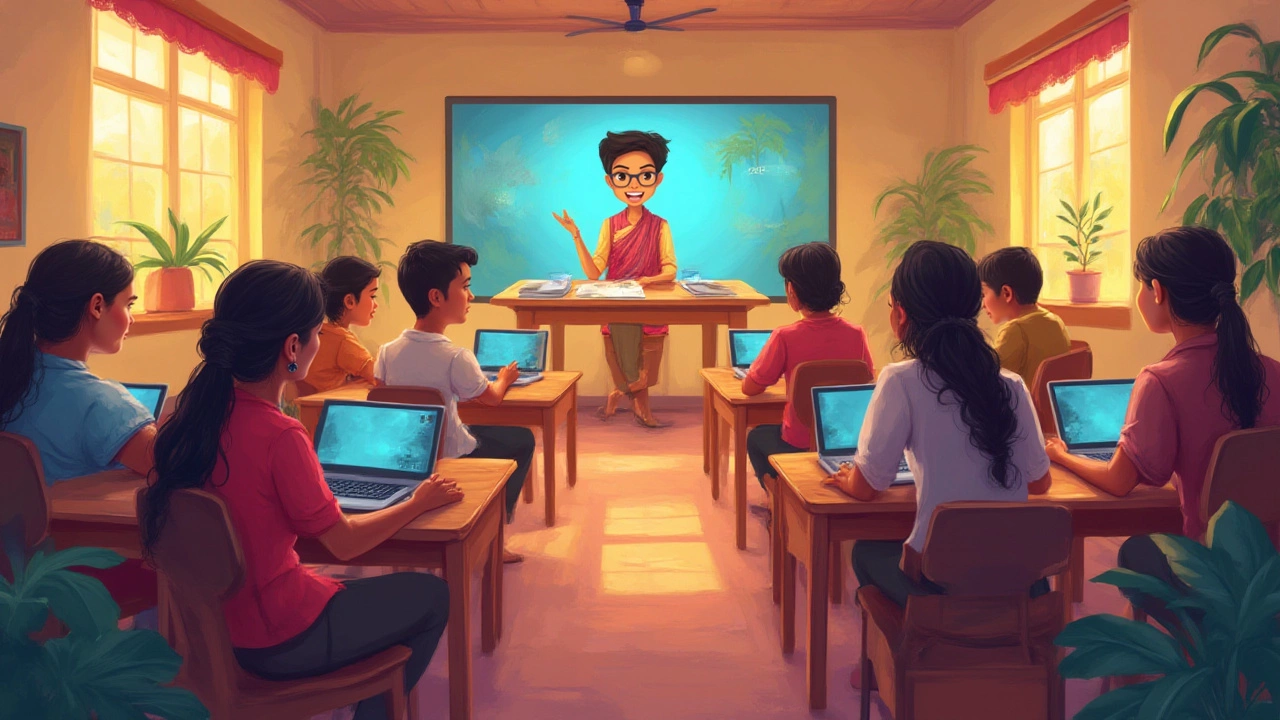2025 July Education Insights: Side Hustles, Government Jobs, and Learning Trends
When you're trying to build a better future in India’s education system, knowing where to focus makes all the difference. Education in India, the structured system of schooling, exams, and career pathways that shapes millions of lives each year. Also known as Indian education system, it’s not just about passing board exams—it’s about preparing for real life, whether that means landing a government job, starting a side hustle, or learning English fluently. In July 2025, the most shared stories on this portal weren’t about theory—they were about action. People wanted to know how to turn what they already do into money, how to beat the competition for stable jobs, and how to speak English without fear.
Side hustle skills, practical abilities people already have but don’t realize they can sell. Also known as monetizable talents, these include everything from tutoring kids after school to editing videos for small businesses. One post showed how someone turned their knack for organizing into a side income by helping parents plan school schedules. Another revealed how teaching basic English to adults online brought in ₹15,000 a month with just 10 hours a week. These aren’t fantasies—they’re real people using what they already know. Meanwhile, government jobs, stable, public-sector roles that offer security but often come with fierce competition. Also known as sarkari jobs, they remain the dream for many, but not all are equally crowded. Some departments, like rural education or local infrastructure, have far fewer applicants than you’d think. The trick? Look where others aren’t looking.
And then there’s online learning, the shift from classrooms to screens, where platforms like Coursera and LMS systems are changing how people study. Also known as eLearning, it’s no longer a backup plan—it’s the main route for many working adults. In July, readers dug into whether paid courses were worth it, how blended learning works, and what LMS actually means behind the tech jargon. The answer? It’s not about the platform—it’s about how you use it. Same with English fluency, the ability to speak naturally, without overthinking or fear, even under pressure. Also known as speaking confidently in English, it’s not about perfect grammar—it’s about training your brain to respond fast. One reader shared how they practiced by talking to themselves in the mirror for 10 minutes a day. Three months later, they nailed a job interview in English.
Whether you’re a student deciding between CBSE and ICSE, a teacher looking for better ways to reach adult learners, or someone trying to afford college without drowning in debt, the posts from July 2025 give you the real talk—not the hype. You’ll find honest comparisons of school boards, the cheapest ways to get a degree, and why some exams are harder than others not because they’re unfair, but because they’re designed that way. No fluff. No promises. Just what works.

Discover Your Hidden Skills for Profitable Side Hustles
Jul 29, 2025 / 0 Comments
Find out how to spot your best side hustle skills—hidden, common, or quirky. Learn practical ways to turn your strengths into extra money, with real-life tips and facts.
READ MORE
Government Jobs with Least Competition: Secret Tips to Secure Your Career
Jul 28, 2025 / 0 Comments
Curious about government jobs that have the least rush? Get practical tips, real stats, and job ideas that most people miss. Real talk, no sugar-coating.
READ MORE
Is Paid Coursera Worth It? Full Honest Review (2025)
Jul 26, 2025 / 0 Comments
Unfiltered look at whether paid Coursera is really worth it in 2025. Cost-benefit, real value, and tips to make the most out of your online learning investment.
READ MORE
How to Start a Successful Career in Government: Guide for Beginners (2025)
Jul 22, 2025 / 0 Comments
Everything you need to know to get started in a government career. Learn about preparing for exams, choosing the right job, and day-to-day facts from real life.
READ MORE
How to Train Your Brain to Speak Fluent English: Simple Steps for Real Results
Jul 21, 2025 / 0 Comments
Discover proven hacks and brain-boosting routines to train your mind for smooth, natural English speaking. Real tips you can use, backed by science and daily practice.
READ MORE
Best School Syllabus for Kids: CBSE, ICSE, IB or State Board?
Jul 19, 2025 / 0 Comments
Wondering which syllabus is best for kids? Get real insights on CBSE, ICSE, IB, and State Boards with facts, tips, and honest pros and cons. No jargon—just clarity.
READ MORE
Hardest Board Exams in the World: Which is the Toughest to Crack?
Jul 15, 2025 / 0 Comments
A deep dive into the world's hardest education boards: why they're so tough, how they compare, and what students experience. Tips, facts, and unique insights await.
READ MORE
How to Teach English to Beginner Adults: Practical Strategies and Tips
Jul 14, 2025 / 0 Comments
Discover actionable methods and tips for teaching English to adult beginners. Boost engagement, motivation, and practical language skills with proven strategies.
READ MORE
Is ICSE Board Accepted in the USA? Recognition, Process & Facts
Jul 12, 2025 / 0 Comments
Explore if the ICSE board is valid in the USA, how US universities assess it, and practical tips for Indian students planning their American education journey.
READ MORE
Cheapest College Courses: How to Find Low-Cost Education in 2025
Jul 8, 2025 / 0 Comments
Discover the cheapest college course options for 2025, from community colleges and online classes to smart tips for saving money on your degree. Learn how to spot tuition deals and opportunities.
READ MORE
Speak English Fluently and Fearlessly: Real Ways to Gain Confidence
Jul 7, 2025 / 0 Comments
Master speaking fluently without fear. Find out why confidence matters, what the brain really does under stress, and get concrete tips to sound fluently brave anywhere.
READ MORE
The Three Main Types of eLearning Explained: Synchronous, Asynchronous & Blended Learning
Jul 5, 2025 / 0 Comments
Discover the three main types of eLearning—synchronous, asynchronous, and blended learning. Learn how each works, their pros and cons, and tips to maximize your success.
READ MORE